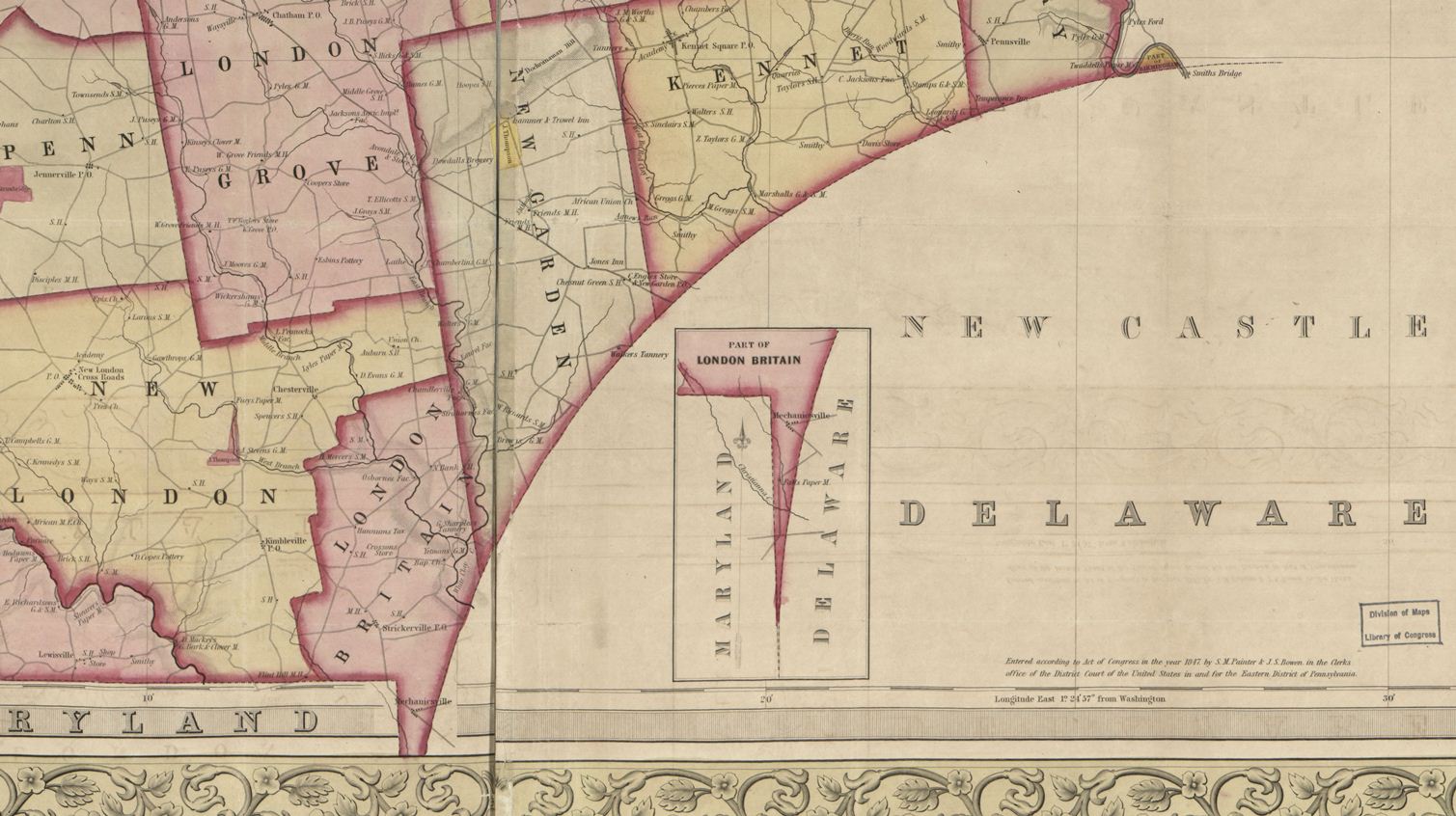He stole someone's identity and used it for 35 years

From The Gazette: A former University of Iowa Hospital employee pleaded guilty to living under another man’s identity since 1988, which caused the other man to be falsely imprisoned for identity theft and sent to a mental hospital. Matthew David Keirans, 58, was convicted of one count of false statement to a National Credit Union Administration insured institution — punishable by up to 30 years in federal prison — and one count of aggravated identity theft — punishable by up to two years in federal prison. Keirans worked as a systems architect in the hospital’s IT department from 2013 to 2023, when he was terminated for misconduct related to the identity theft."
A six hundred year old blueprint for weathering climate change

From The Atlantic: "Beginning in the 13th century, the Northern Hemisphere experienced a very dramatic climatic shift. First came drought, then a period of cold, volatile weather known as the Little Ice Age. In its depths, the annual average temperature in the Northern Hemisphere may have been 5 degrees colder than in the preceding Medieval Warm Period. It snowed in Alabama and South Texas. Famine killed perhaps 1 million people around the world. But native North Americans and Western Europeans responded very differently to the changes. Western Europeans doubled down on their preexisting ways of living, whereas Native North Americans devised whole new economic, social, and political structures to fit the changing climate."
The man who almost single-handedly broke the music business

From The New Yorker: "One Saturday in 1994, Bennie Lydell Glover, a temporary employee at the PolyGram compact-disk manufacturing plant in North Carolina, went to a party at the house of a co-worker. Glover realized that the host had been d.j.’ing with music smuggled out of the plant. He was surprised. Plant policy required all permanent employees to sign a “No Theft Tolerated” agreement. He knew that the plant managers were concerned about leaking, but in time, he became aware of a far-reaching underground trade in pre-release disks. “We’d run them in the plant in the week, and they’d have them in the flea markets on the weekend,” he said. “It was a real leaky plant.”
Editor's note: If you like this newsletter, please share it with someone else. And if you really like it, perhaps you could subscribe, or contribute something via my Patreon. Thanks for being a reader!
Why opening a bookstore in Kuwait turned out to be a bad idea

From Lithub: "I was on a quest to bring back a lost form of bookstore. The kind that offers a creative space for exchanging ideas and an enduring, steadfast haven. I wanted it to be a place that could make its mark on people’s lives, bridging the divide between cultural and community work. But soon, I felt I was being slapped in the face time and again as I saw books that had been approved in previous years being banned. One Hundred Years of Solitude was apparently not allowed. The banning of Ghassan Kanafani’s timeless novel, Men in the Sun, was particularly painful. And Nikos Kazantzakis’ Zorba the Greek was banned and approved, then banned and approved again."
Author Annie Dillard writes about what it was like to see a solar eclipse

From The Atlantic: "I had seen a partial eclipse in 1970. A partial eclipse is very interesting. It bears almost no relation to a total eclipse. Seeing a partial eclipse bears the same relation to seeing a total eclipse as kissing a man does to marrying him, or as flying in an airplane does to falling out of an airplane. Although the one experience precedes the other, it in no way prepares you for it. I turned back to the sun. It was going. The sun was going, and the world was wrong. The grasses were wrong; they were platinum. The hillside was a 19th-century tinted photograph from which the tints had faded. My hands were silver. All the distant hills’ grasses were finespun metal that the wind laid down. I was watching a faded color print of a movie filmed in the Middle Ages."
Living on the Wedge: The long, strange history of a disputed border

From Mental Floss: "The Commonwealth of Pennsylvania is home to its fair share of oddities. But one of the strangest stories involves the state's southern border and the controversy that surrounded it for more than a century. The Wedge – also known as the Delaware Wedge – is a 1.068 square-mile, roughly triangular chunk of land that sits at the point where Pennsylvania, Delaware and Maryland all bump up against each other. Born of the shortcomings of a survey designed to settle yet another border dispute, the Wedge was disputed territory almost as soon as the colonies were established, and was once a lawless no-man’s land, providing shelter for illegal bootlegging and gambling operations. The battle over the land wasn’t resolved until 1921."
A video clip shot from a car during the Taiwanese earthquake
Whoahh! Four new videos have emerged from the M7.4 earthquake in Taiwan 😱
— Volcaholic 🌋 (@volcaholic1) April 9, 2024
Thanks @blackk3799 pic.twitter.com/zuYM1vE55v
Acknowledgements: I find a lot of these links myself, but I also get some from other newsletters that I rely on as "serendipity engines," such as The Morning News from Rosecrans Baldwin and Andrew Womack, Jodi Ettenberg's Curious About Everything, Dan Lewis's Now I Know, Robert Cottrell and Caroline Crampton's The Browser, Clive Thompson's Linkfest, Noah Brier and Colin Nagy's Why Is This Interesting, Maria Popova's The Marginalian, Sheehan Quirke AKA The Cultural Tutor, the Smithsonian magazine, and JSTOR Daily. If you come across something interesting that you think should be included here, please feel free to email me.



